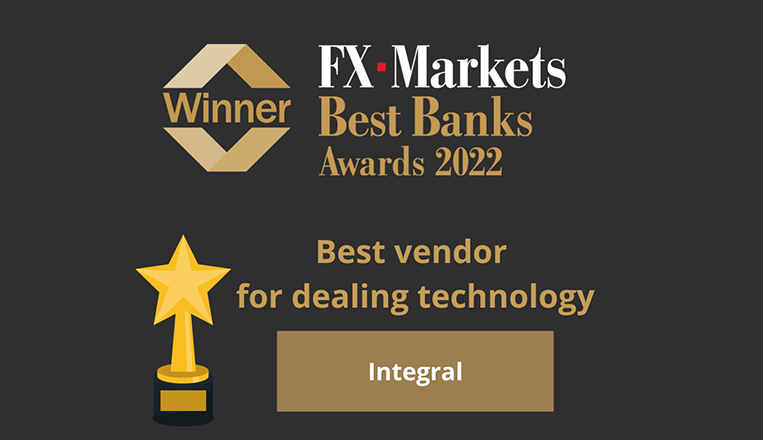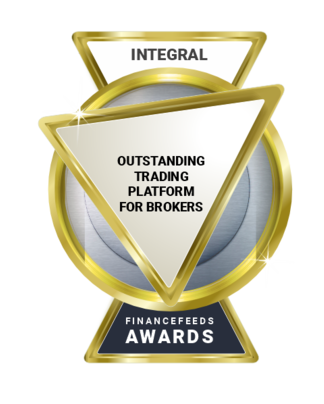Global FX markets have seen a lot of change again this year. Volumes are still depressed. The regulatory environment is heating up. A number of new competitors were announced and will be launching in the near future. Is this a good time to start your own FX brokerage? Read what Harpal Sandhu has to say in response to this and 9 other questions.
1. What is the biggest change you have seen in recent years in FX markets?
The biggest change must be how technology has lowered the barriers to entry for many new market participants to enter and thrive in the global foreign exchange market. What was previously an extremely fragmented, disconnected, opaque market is transforming into a more diverse, integrated, and transparent market.
2. People are talking about a technology arms race in FX. With that said, does anyone other than the largest and best capitalized players stand a chance to compete at all?
Yes, it is true that in order to compete and win in this competitive FX market, one must make use of very capital-intensive technology infrastructure. It does not mean, however, that one needs to build and own that infrastructure themself. The Integral shared platform and the cloud services are on par with or better than any other technology solution out there, at a fraction of the price and with far less risk. The game has changed and as in other industries, the introduction of a shared technology platform has dramatically leveled the playing field.
3. What is your advice for market participants with large off-line or telephone-based businesses who are considering going on-line?
The good news is that today’s technology can deliver discrete functionality similar to what human traders or salespeople can do. Integral has a track record of helping banks and brokers launch their own FX platform, basically for free and with very little risk. It can happen with no capital expenditures on their part and can be deployed in a matter of weeks, because they benefit from the pre-existing connections with all major sources of liquidity and prime brokers that we have aggregated over many years. And, given that they have no ongoing fixed expenditures, they have no running costs to worry about. So why wouldn’t they go electronic now?
4. How is Integral different from other technology solutions?
We are a neutral service provider. We are not and will never be a bank or a broker, nor do we transfer the risk of a successful implementation to the customer. While this seems like an obvious distinction, it carries many ramifications that may not be as evident. The biggest difference to the traditional license-and-install software vendors is that we enter into true partnerships with our customers. The basic reason lies in the way we are compensated: Integral charges a small service fee on any trade our customers execute on our platform. If customers are not trading, we are not getting paid. If customers are not happy with the system, we are not getting paid. Therefore, our interests are fundamentally aligned for the short and long term. We want them to be successful and to expand their businesses.
5. What is your position on the discussion around platform proliferation?
I think that these new platforms are a great addition to global FX markets. Actually, they are a great indication of the technology revolution that has been taking place over the last few years. Today, technology has advanced to a point that mass customization is now practical and economically feasible. Modern cloud-based service offerings, like Integral, can automate what you have exactly the way you have it. What we are witnessing is that many off-line FX businesses are moving online by embracing e-FX. It’s a trend that we applaud and one that I think will continue.
6. With lower volumes, regulatory pressure, many new competitors, is this a good time to start your own FX brokerage?
If you have a solid business idea, if you are committed to great customer service, and if you’re marketing organization is top notch, there has never been a better time to venture out and compete in FX. There is more transparency than ever, the barriers of entry are lower than ever, and with the right technology partner, you can focus like never before on customer service and acquisition. If you have any doubts, give us a call so we can discuss your opportunity in more detail.
7. What is cloud computing and how can it help me?
Cloud computing is a new paradigm that has dramatically changed many industries, including FX. Its key characteristics are the use of a shared IT infrastructure and a pay-as-you-go business model. Previous static technology products with fixed functionality have been replaced by flexible cloud services that you subscribe to on an as-needed basis. What all that adds up to is a business model with virtually no fixed costs, no CAPEX, and the built-in flexibility to change as your business needs change.
8. Where do see the future of white labeling?
Generally speaking, I see a bright future for white labeling, but it will be slightly evolved. Clearly, I don’t see many new proprietary platforms emerging that are not in one form or another based on a common underlying technology. In light of the quality of technology solutions that are available already, it just doesn’t make sense given the costs and time required to build something from scratch. I am hesitant to call this ‘white labeling’ since it is so much more. White labeling, how it came to be understood by most people, describes the licensing of somebody else’s technology platform and somebody else’s liquidity – without any real chance of making it your own. The new kind of white labeling, how we understand it, puts the business owner in control of key elements and allows for far-reaching customization of the technology tools to fit that business owner’s preferences. FX has come a long way from the one-size-fits-all white-label offerings from years past.
9. What is your position on the principal vs. agency business model?
The debate in the market is sometimes very heated, with different people making absolute statements for or against either one. In my view, both models have their respective merits. Our platform supports both, and at times even for different customer segments under the same brand. And that is the best news: You don’t have to take sides. In the end, your customers will tell you whether they want what you’re offering. And if not, and if you are one of our customers, we will help you adapt to better serve their needs; because that is the most important debate of all.
10. What has been your proudest achievement as CEO of Integral?
The fact that we helped launch more than 200 and counting FX platforms that are all unique, customized businesses that vary in market structure, value proposition, target audience, user experience and business model, all branded under the name of our customers. As far as I know, no one other than Integral offers technology that can support the variety of platforms on a single virtual SaaS system. That’s where we think we have accomplished something that fundamentally changes the economics of the FX service provider market. This is not unlike the effect that the introduction of Lotus 1-2-3 and MS Excel had on the financial software market: One system, provided by a technology vendor, extremely customizable, with virtually unlimited applications designed by and “owned” by the customers themselves.



